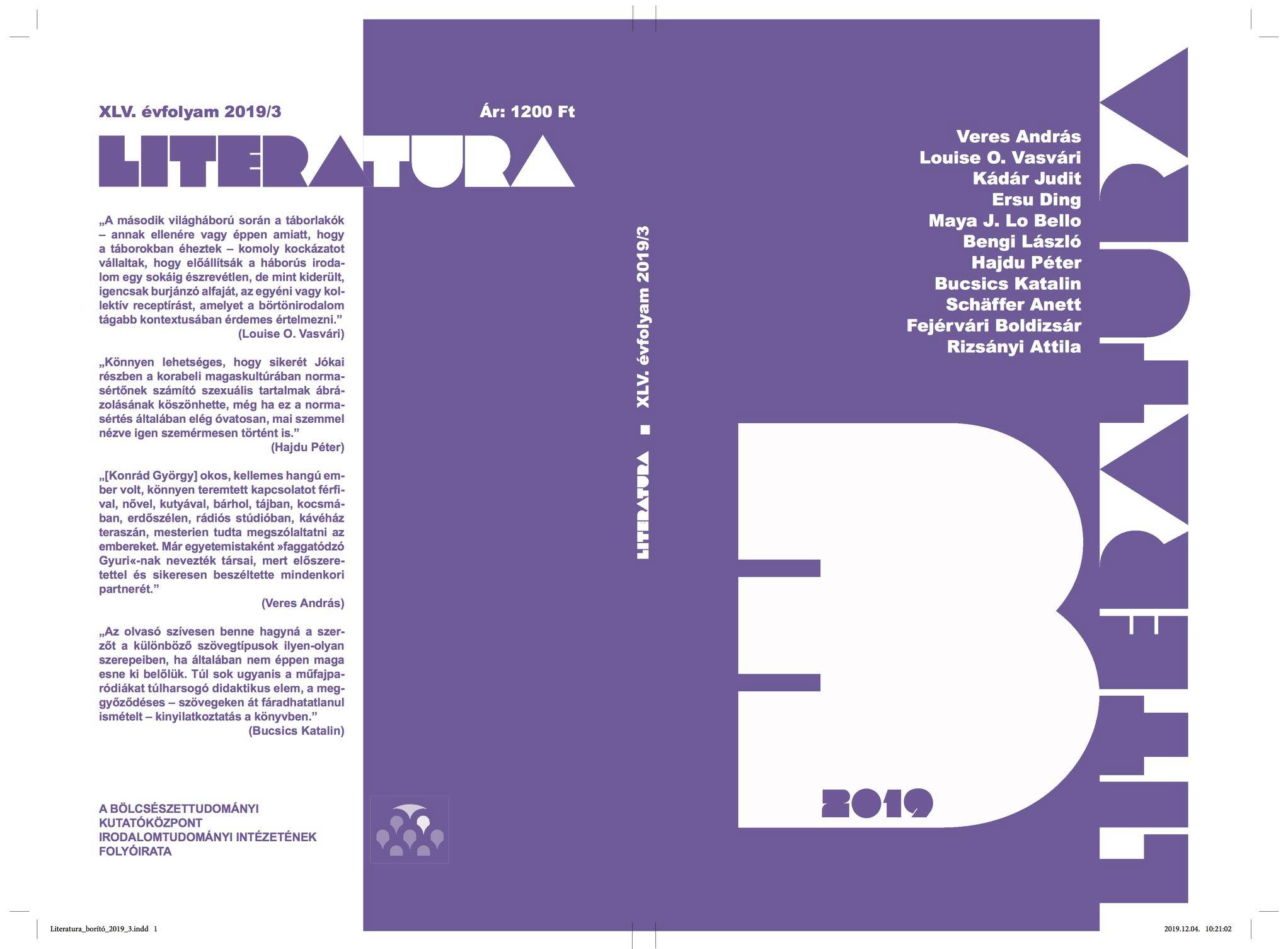Jókai ázsiai utópiája A jövő század regényében
Absztrakt
The Asian utopia of Mór Jókai in The Novel of the Next Century
This is a case study in cross-cultural imagology. Mór Jókai’s utopian novel titled The Novel of the Next Century (1872–1874) offers a colourful and often repulsive panorama of national and racial stereotypes (not to mention gender stereotypes), but the Chinese part is particularly interesting. Most utopias devote significant space to describing the sexual life of the imagined better (or in the case of dystopias, worse) society, which is hardly surprising, since they have to say something about the possible transformation of the family as nucleus of the society, and also because there are so many social constrains around sexuality in the Western world. Decorum did not allow Jókai to imagine a basically different sexual practice in the future, but he inserted a Chinese source about Kin-Tseu, a hidden country among the mountains of Central Asia without any significant social control of sexuality. Although the novel will prove that the Chinese myths about that country are erroneous, it is telling that the imagination of a society of free love is attributed to the Chinese. The omniscient narrator then corrects the sexualised Chinese phantasy about Kin-Tseu, which proves to be a real utopia based on strictly monogamous family life and the ethos of sobriety and hard work.



